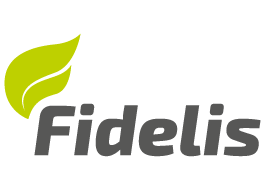Why air hygiene is so important in schools
Fresh airflow into our buildings has been in sharp focus over the past three years. Improving air hygiene has been a priority in many economic sectors across the UK to tackle Covid-19 and other airborne viruses. And this has been especially important in schools. But beyond infection control, kitchen extract and ducting systems are also crucial air hygiene concerns in any organisation dealing with hot food. There’s a legal requirement to install a suitable grease trap and to maintain it properly. Poorly maintained kitchen grease extractors can severely undermine air hygiene standards. And they present a fire risk: it’s not uncommon for systems laden with grease to ignite. This blog looks at grease extraction cleaning as part of schools’ commitment to air hygiene – and how Fidelis is here to help.
Rigorous standards for air hygiene in schools
Dealing with hot food in a school setting requires ventilation and ducting systems, including a suitable grease trap. Fully complying with legislation on installing and maintaining these systems will avoid any costly fines and penalties. Broadly speaking, there are two elements to compliance cleaning when it comes to kitchen ducting and grease traps in schools. On the one hand, in accordance with the Food Safety Act 1990, any build-up or blockage caused by fats, oils and greases in drains fails to comply with food hygiene regulations. On the other hand, it’s about keeping school staff safe from fire and other risks under the Workplace (Health, Safety and Welfare) Regulations 1992 and the Health and Safety at Work Act 1974.
Many cleaning companies comply with TR19 standards when it comes to school air hygiene. However, there are new, more rigorous standards now in operation. The National Association of Air Duct Specialists (NAADUK) has launched its new comprehensive guidance document NAAD21, a world-leading guidance document in air conditioning. This, in turn, allows professional cleaning companies to meet BSEHV11, the new National Occupational Standard for cleaning industrial and commercial ventilation systems. This ensures cleaning companies have robust practices and procedures and can demonstrate their professional competency when it comes to planning and undertaking the work.
The risks of failing to meet regulations
Any failure to undertake grease extractor cleaning is a serious business. There are obvious implications if uncleaned systems in school kitchens cause a fire, such as a fatality or serious injury to students or staff on-site at the time. There are also attendant legal and financial consequences for school boards and senior management under health and safety regulations. And buildings insurance would be invalidated if it’s shown that an affected site has failed to carry out regular inspection and cleaning of grease extraction systems.
There are other repercussions if schools fail to carry out routine and professional specialist cleaning on these ducting systems. The site can experience air quality issues, including the failure to extract air pollutants and foul odours, which can taint food, trap allergens, and attract pests. What’s more, an uncleaned grease extractor system will cost more to run as it uses up more energy trying to work efficiently despite the blockages. And this is very much a case where prevention is better than cure. Regularly cleaned systems take less time to clean than dirty ones. Allowing dirt and grease to build up will require more costly and disruptive project cleaning to bring a system back up to the required standards.
How do we go about securing school air hygiene?
Here at Fidelis, we can carry out grease extraction cleaning, as part of our range of cleaning services for school HVAC (heating, ventilation, and air conditioning) systems. Our team will start with a Dynamic Risk Assessment. Usually, access to the grease trap and ducting will be from ground level, but if it’s at a higher level, we can use rope or platform access equipment as required. If the system needs access hatches, we carry these as part of the van stock. We’ll carry out a visual inspection of the system to ascertain any build-up, and we’ll take photos to show the state of the system before the cleaning.
We’ll then carry out the cleaning as required, using suitable equipment and products. We clean all filters in the system on-site, and we’ll replace them if maintenance is not reasonably practicable (for instance, if they’re damaged or irretrievably clogged). Once we’ve completed the task, we’ll take pictures for reporting. We’ll clean the area under where we’ve worked, as this can be a messy business. And finally, we’ll supply a report on the works carried out in accordance with BSEHV11 standards, including recommendations for when the next clean should take place.

What sets Fidelis and the REACT group companies apart on air hygiene
There are a number of reasons why our service sets us apart from the competition. Across the REACT group of companies, we clean to BSEHV11 standard, and we follow the NAAD21 guidance. As noted above, this is more rigorous than the TR19 guidance that the majority of ventilation hygiene cleaning businesses follow. We’re prepared for every job, so we have suitably trained rope access teams available for work at higher levels, and we always have access hatches as part of our vehicle stock.
We can plan work across the year to work around our school clients’ needs, meaning disruption is kept to a minimum. Once we’ve cleaned the system and brought it back up to the required standards, we offer flexible and cost-effective long-term maintenance plans to help sites keep on top of the required cleans moving forward. We can carry out all cleanouts per planned preventive maintenance schedules (PPM). And we’ll always provide dynamic reporting, with colour pictures showing clear before and after, for our school clients’ record keeping. Whether it’s an ad hoc project clean or as part of pre-planned maintenance, we’re proud of working to the highest standards to protect our clients and their people.
To find out more about Fidelis Group and our air hygiene cleaning services for schools, contact one of the team today.
- Telephone: 0845 431 0382 | 0121 289 3258
- Email: info@fidelisgroup.co.uk
- Website: www.fidelisgroup.co.uk

